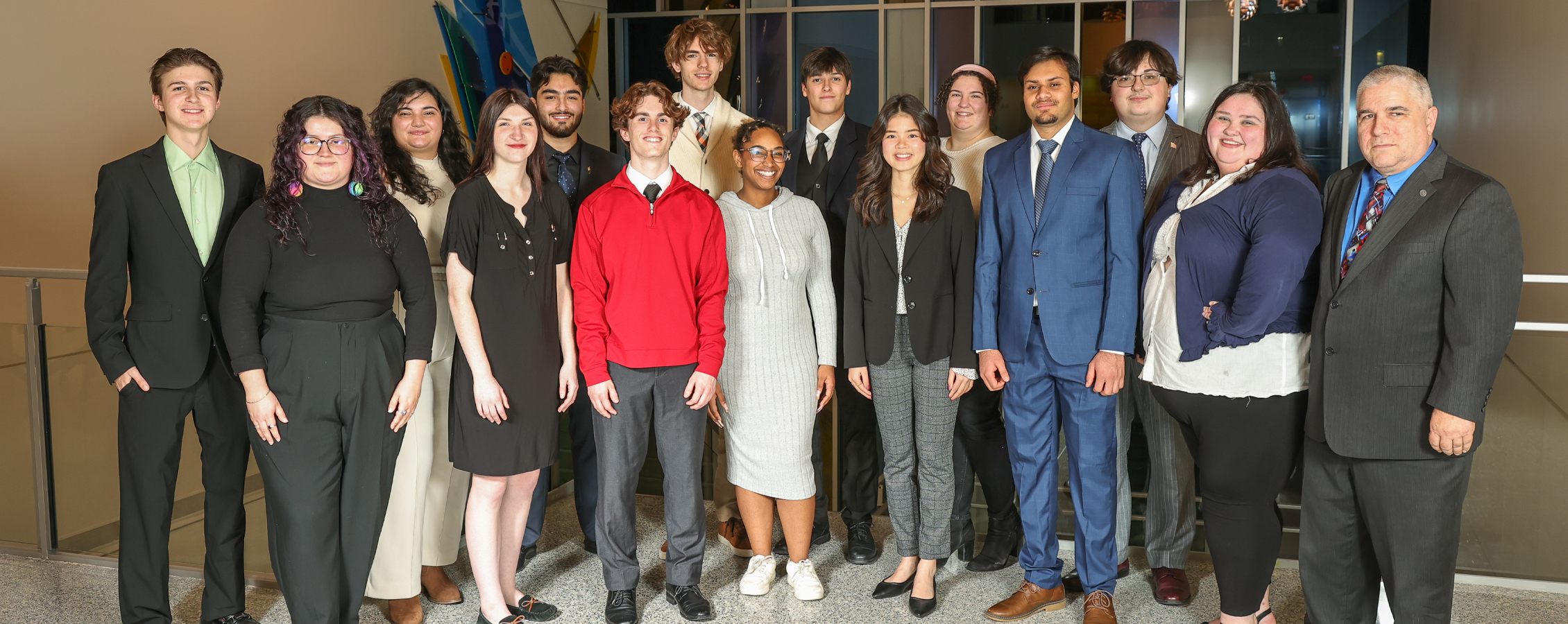- Environmental Restoration in Marinette, Wisconsin [PDF] — This study examined and evaluated the benefits and challenges of environmental restoration, including its effect on environmental justice and sustainable development.
- Fund for Lake Michigan [PDF] — Based on FERC findings, the Fund for Lake Michigan had a substantial and concrete impact on the economy by adding 2,200 jobs, $105 million in labor income, and $297 million in economic output from Spring 2014 to Fall 2023.
- The Blue Green Corridor [PDF] — Establishing the intersection between economic growth and environmental design, this study evaluated the economic impact of a blue/green corridor along the Chicago River.
- New Jersey Brownfields Economic Analysis [PDF] — Brownfields are defined as former commercial or industrial sites with potential contaminant discharge. Since 2006, the New Jersey Department of Environmental Protection has awarded over $208 million to public entities to assist brownfields investigation, clean-up and redevelopment. This study analyzed the economic impact of New Jersey’s Brownfield Initiatives.
- The Economic Impact of Green Bay Recreational Fishing [PDF] — The FERC partnered with Walleyes for Tomorrow and the Wisconsin Department of Natural Resources to explore the impact of angling in the Bay of Green Bay watershed on the state economy. Leveraging the WDNR's creel survey, the organization distributed survey packets to recreational anglers at various locations, with voluntary participation.
- Wisconsin Brownfield Economic Analysis [PDF] — Since 1998, the state of Wisconsin has provided grants totaling over $121 million to assist brownfields investigation, clean up and redevelopment. This study assessed the economic and fiscal impacts of a state, like Wisconsin, investing public funds into an initiative that cleans up and reuses brownfield properties.
Working for Wisconsin’s future
When you have questions, we tell the story. With facts, with numbers, and with analysis, UW-Whitewater’s Fiscal and Economic Research Center empowers students to conduct meaningful research for area businesses, non-profit organizations, and government entities. Under the mentorship of our expert faculty, we provide outreach services to the regional community in areas including the environment, water, tourism, housing, agriculture, employment, taxation, and education.
From studying the impact of county fairs to assessing government programs, the FERC establishes hands-on learning techniques showcasing the talent of our high-caliber students and delivering for our clients.
If the impact of your program or organization is difficult to quantify, we’ve got the resources to tell your story, too.
FERC measures economic impact of scenic outdoor trail
Findings of a 2024 FERC study show the popularity and impact of Wisconsin’s Ice Age National Scenic Trail, one of 11 in the nation, on the state’s economy. The Ice Age Trail attracts 4.65 million people and generates $431 million in economic output annually. Whitewater is an Ice Age Trail Community.
What services does the FERC provide?
Economic impact analysis
Housing, environmental and agricultural assessments
Product viability and entrepreneurship prospects
FERC assesses economic impact of broadband access in tourism hotspot

UW-Whitewater’s FERC conducted a study measuring the economic impact of broadband expansion in the Door County area, a popular destination for travelers located on the Wisconsin peninsula on Lake Michigan. The center was commissioned by the Door County Economic Development Corporation and the County of Door Broadband Office to conduct the study, which surveyed secondary residents about their experiences with internet access in the Door County area and estimated the economic impact of creating a reliable broadband network.
Projects
- Economic and Fiscal Impact of the Overture Center [PDF] — This report demonstrated a post-pandemic annual economic impact of the Overture Center’s activities at $34,500,000.
- Economic Impact of Milwaukee Irish Fest [PDF] — The FERC collaborated with Milwaukee Irish Fest organizers to create a survey assessing the spending patterns of festival attendees, covering areas like refreshments, music, apparel, and more. Using data from 703 randomly selected attendees, the FERC employed a standard algorithm to analyze the results, ultimately generating a comprehensive report on the direct and indirect economic impact of Milwaukee Irish Fest on both the city and its surrounding communities.
- The Economic Impact of the Walworth County Fair [PDF] — In this study, the FERC evaluated the economic impacts of the Walworth County Fairgrounds. IMPLAN, an input-output method, was utilized to assess the economic effects in three categories: direct effect, indirect effect, and induced effect, collectively providing a comprehensive measure of the total economic impact of the fairgrounds on the local economy.
- Milwaukee Mile 2024 Race Economic Impact & Demographic Analysis [PDF] — The event generated a total of 360 jobs, 13.4 million in labor income, and $41 million in economic impact in the region.
- Wisconsin Chamber Orchestra [PDF] — Each year, the Wisconsin Chamber Orchestra hosts the Concerts on the Square Series featuring the performances of a variety of world-class musical acts. In 2024, this six-concert series is celebrating its 40th anniversary, and more than 240,000 visitors and patrons are expected to attend over all the events. This study analyzed the economic and fiscal impact this series has had on the city of Madison’s economy.
- Woodman’s Sport and Convention Center [PDF] — The purpose of this study was to assess the economic impact of the Woodman’s Sports and Convention Center proposed for Janesville, Wisconsin. This study goes over the direct and indirect value this project brings to the Rock County community.
- Affordable Housing in Walworth County, Wisconsin [PDF] — The goal of this study was to examine the relationship between the supply and demand of the single-family and multi-family housing in Walworth County.
- Workforce and Industry Trends in South Central Wisconsin [PDF] — This study reviewed data regarding location quotients, average wages for occupations and industries, employment trends in occupations and industries, and housing prices in Dane, Walworth, Jefferson, Dodge, and Rock counties. This study explored which occupations these counties rely heavily on and to see if surrounding counties are paying higher wages for similar occupations.
- Dodge County Housing Report [PDF] — The FERC reviewed data regarding both single- and multi-family housing, which developed a picture of the housing market in Dodge County, Wisconsin. This report contains three areas of analysis: Dodge County single-family housing affordability, Dodge County renter-occupied housing, and a housing analysis of 14 communities in Dodge County.
- Jefferson Housing Report [PDF] — The FERC reviewed data regarding both single- and multi-family housing, which developed a picture of the housing market in Jefferson County, Wisconsin. This report contains three areas of analysis: Jefferson County single-family housing affordability, Jefferson County renter-occupied housing, and a housing analysis of the main communities in Jefferson County.
- Walworth County Housing Report [PDF] — The FERC reviewed data regarding both single- and multi-family housing, which developed a picture of the housing market in Walworth County, Wisconsin. This report contains three areas of analysis: Walworth County single-family housing affordability, Walworth County renter-occupied housing, and a housing analysis of 13 municipalities in Walworth County.
- Aronia Berry Report [PDF] — The purpose of this report was to provide analysis of the current market of aronia berries throughout the world with a focus on what American aronia farmers can do to compete with foreign suppliers.
- Bison Meat Processing Feasibility Study [PDF] — The FERC assessed the feasibility of operating a meat processing plant in South Dakota on the Rosebud Reservation. The goal of this feasibility study was to give an overview of capital requirements and challenges that come with the meat processing systems to update REDCO’s feasibility study (BlueStone, Dec. 2020) and relate them to Friesla models.
- Cranberries of Wisconsin [PDF] — In 2012, FERC gathered data from government agencies and growers associations including the United States Department of Agriculture (USDA), the National Agricultural Statistics Service (NASS), the Wisconsin State Cranberry Growers Association (WSTCGA), and the Cape Cod Cranberry Growers Associations (CCCGA) on this industry. Information included production totals, yield per acre, acres harvested, utilization (fresh or processed), pricing, value of production and local economy spending.
- Egg Farming Feasibility Study [PDF] — The objective of this feasibility study was to provide an overview of the egg farming infrastructure needs and challenges of the client. It provides a framework of the investment and infrastructure required to start an egg farming operation sized and scaled appropriately for the client and makes recommendations for the equipment required, estimates what it might cost to operate such a farming operation, including pricing and markets, and establishes whether there would be a market for the farming operation, as well as the financial feasibility of such a venture.
- Grain Milling Feasibility Study [PDF] — The objective of this feasibility study was to provide an overview of the oat milling infrastructure needs and challenges for the client. It provides an example of the investment and infrastructure required to build an oat mill sized and scaled appropriately for the client, makes recommendations for the equipment required and the costs for build out of a new facility, estimates what it might cost to operate such a milling operation, including pricing and markets, and establishes whether there would be a market for the milling operation and the financial feasibility of such a venture.
- Oat Milling Feasibility Study [PDF] — This feasibility study aimed to assess the oat milling infrastructure needs for the client, offering recommendations on construction, equipment, operational costs, pricing, and potential markets. Market research conducted through extensive interviews and third-party reviews evaluates the viability of the client providing milling services and selling oat products in Wisconsin, identifying target markets and potential clients in various sectors, including oats, gluten-free products, craft breweries, bakeries, and specialty stores.
- The Effect of Expiration Dates on Purchasing Decisions in Grocery Stores [PDF] — Two of the many things that may influence consumers in their decision-making process at the grocery store include discounting and expiration dates. Throughout the fall of 2017, the FERC conducted surveys at grocery stores throughout the state of Wisconsin to determine individual’s perception of grocery store quality based on these factors.
- The Economic Impact of Potato Production in Wisconsin [PDF] — In 2010, Wisconsin was the nation’s third-largest grower of potatoes, producing 2.4 billion pounds of potatoes. In 2014, the FERC sought to establish the role of potato production in Wisconsin’s agricultural output and overall economic welfare. The findings of this study help quantify the extent that Wisconsin is a significant player in the United States potato industry and demonstrates the importance of this industry to the overall success of the state.
- Processed Sweet Corn: Analyzing the Economic Impact in Wisconsin [PDF] — Wisconsin is the leading state in exporting processed sweet corn. This report analyzes the impact that the sweet corn processing industry has on the state’s economy.
- Yellow Perch Inclusive Excellence Report [PDF] — This FERC study explored the profitability of sustainable production of yellow perch.
- Interim Report on Changes in Tax Increment Financing [PDF] — The focus of this report was to chronicle the key changes in Tax Increment Financing (TIF) policy and show how Wisconsin’s TIF laws have been modified since 1974 in response to crisis and opportunity.
- Evaluating Wisconsin’s Jobs Tax Credits Program [PDF] — The purpose of the Jobs Tax Credit (JTC) program is to incentivize businesses to locate and expand their activities in Wisconsin. This report analyzed the impact that the JTC program has had on the Wisconsin economy.
- The Economic Impact of UW-Whitewater [PDF] — FERC used institutional spending data combined with student and visitor surveys to determine the university’s economic impact. Respondents were asked to calculate the total amount they spend each month across various categories such as food, housing, and transportation within the local economy.
- The Value of a UW-Whitewater Degree [PDF] — FERC used alumni survey data from the Classes of 1982-2023 combined with data from the U.S. Census Bureau and the U.S. Consumer Expenditure Survey to determine the alumni economic impact and value of a UWW degree.
- Economic Impact on Wisconsin of Trade Supported Technical Education [PDF] — An effort to change the relationship between the construction industry and trade unions in Wisconsin is ongoing. This report explored the impact that altering this relationship would have on the Wisconsin economy.
- NCAA Division III Athletics Measuring X-efficiency 2007-2012 [PDF] — Using data from 2007-12, the FERC developed an x-efficiency analysis to estimate how effectively universities used resources to score points in the Directors' Cup competition, a broad-based mark of success for college athletics.
- The Economic Impact of Federal Research Grants on the State of Wisconsin [PDF] — The FERC reviewed the economic impacts that federally funded grants had on the State of Wisconsin’s economy. This study focused on the research conducted during the 2018-19 fiscal year, when financial contributions from the Federal Government were allocated to students and faculty members, fringe benefits, travel expenses, job training and development, etc.
Our mission

The mission of the Fiscal and Economic Research Center (FERC) is to tap into the University of Wisconsin-Whitewater faculty expertise and provide outreach services to members of the regional community. In achieving this mission, FERC provides high caliber students the opportunity to work closely with faculty experts to apply concepts and theories to practical, real-world cases. Practical project-based work enhances students’ educational experience and maximizes their value to future employers by providing them with an economic tool-set applicable in modern firms.
Contact us
Want to hire the FERC or commission a project?
Contact Russ Kashian, Ph.D., FERC co-founder and director, for more information | 262-472-5584 | kashianr@uww.edu
Our leadership
Russ Kashian, professor of economics and co-founder/director of UW-Whitewater’s FERC, has been a member of the Warhawk family for nearly 25 years. He is a respected business owner, mentor, scholar and grant recipient.




